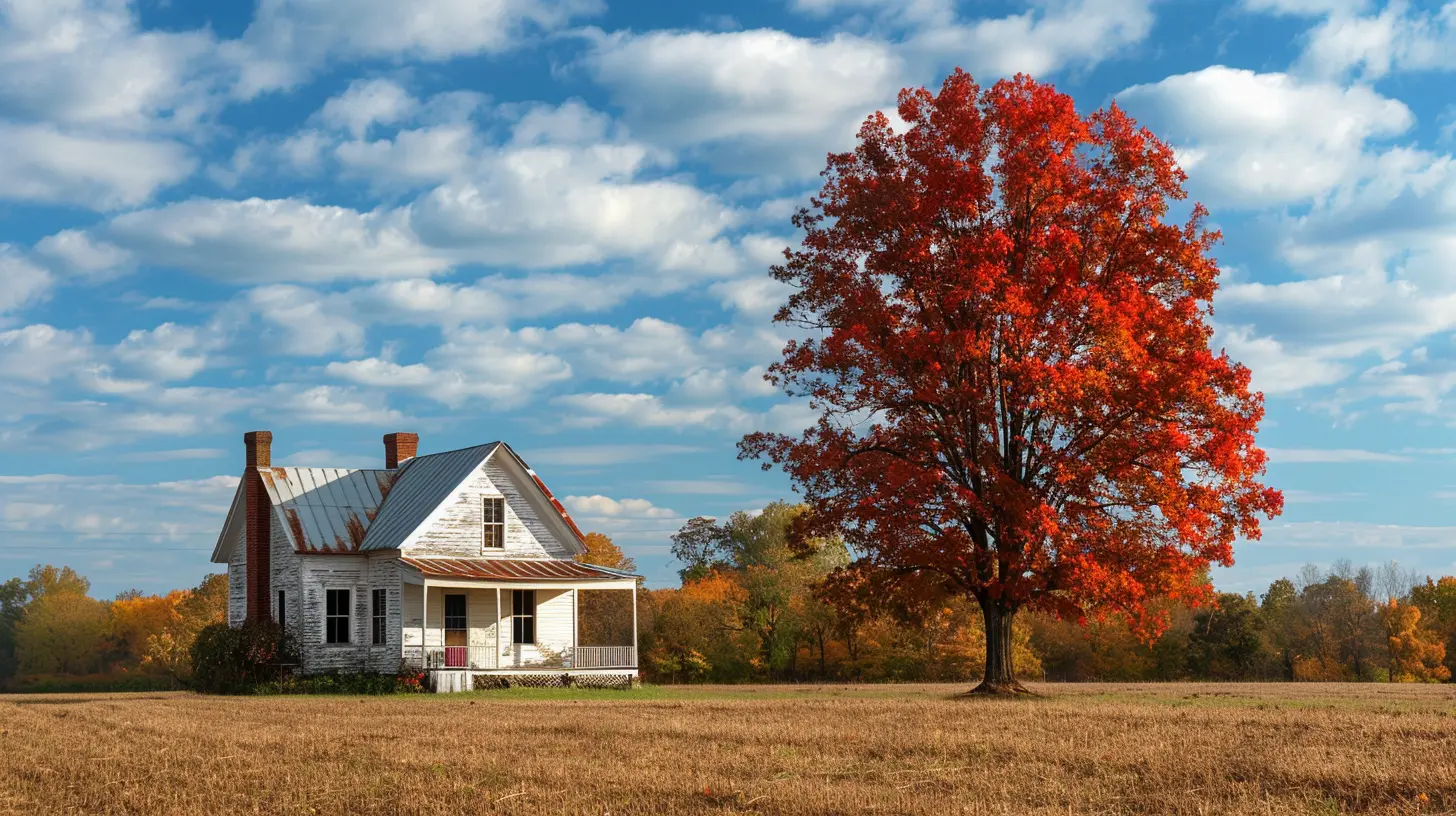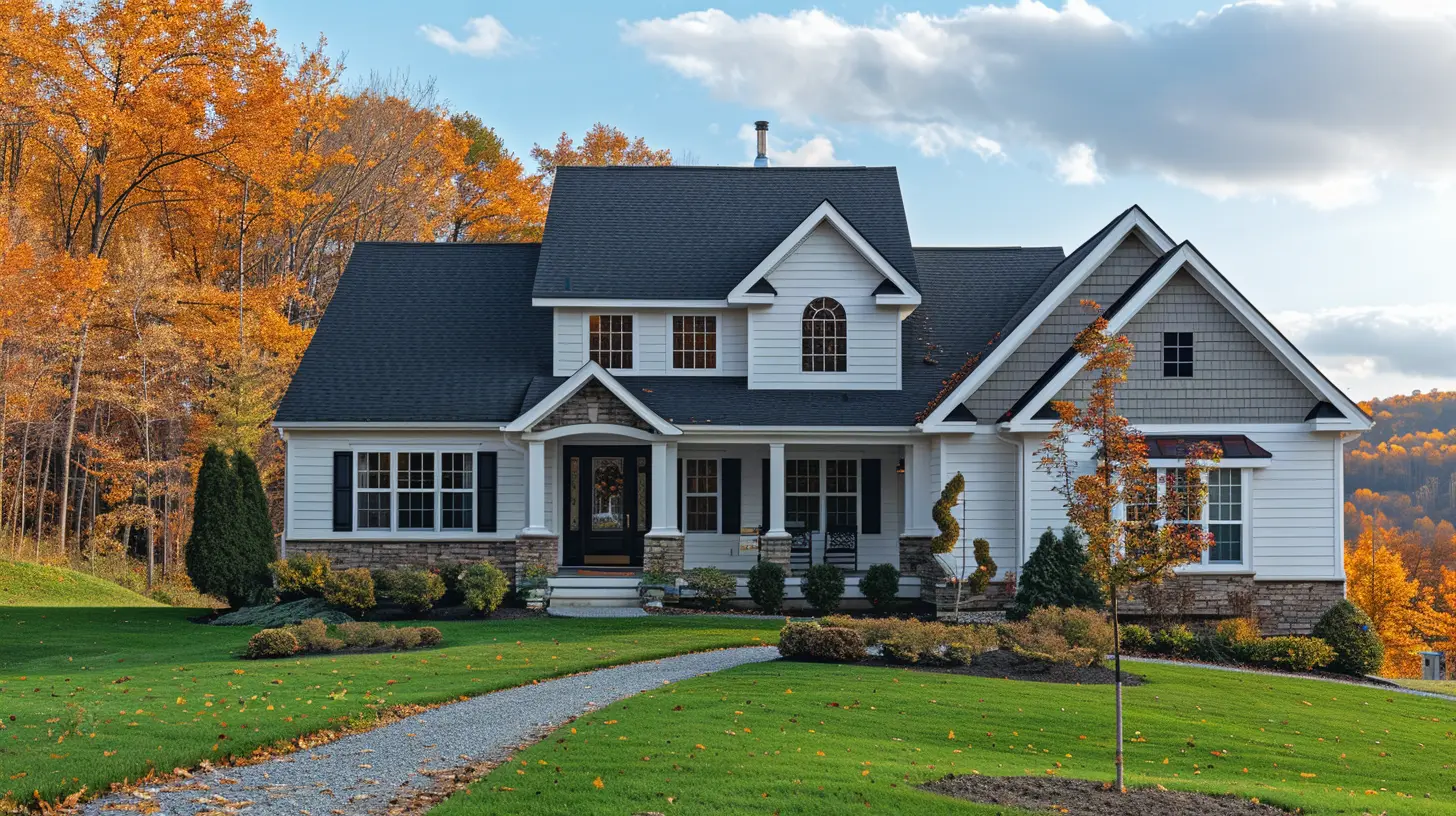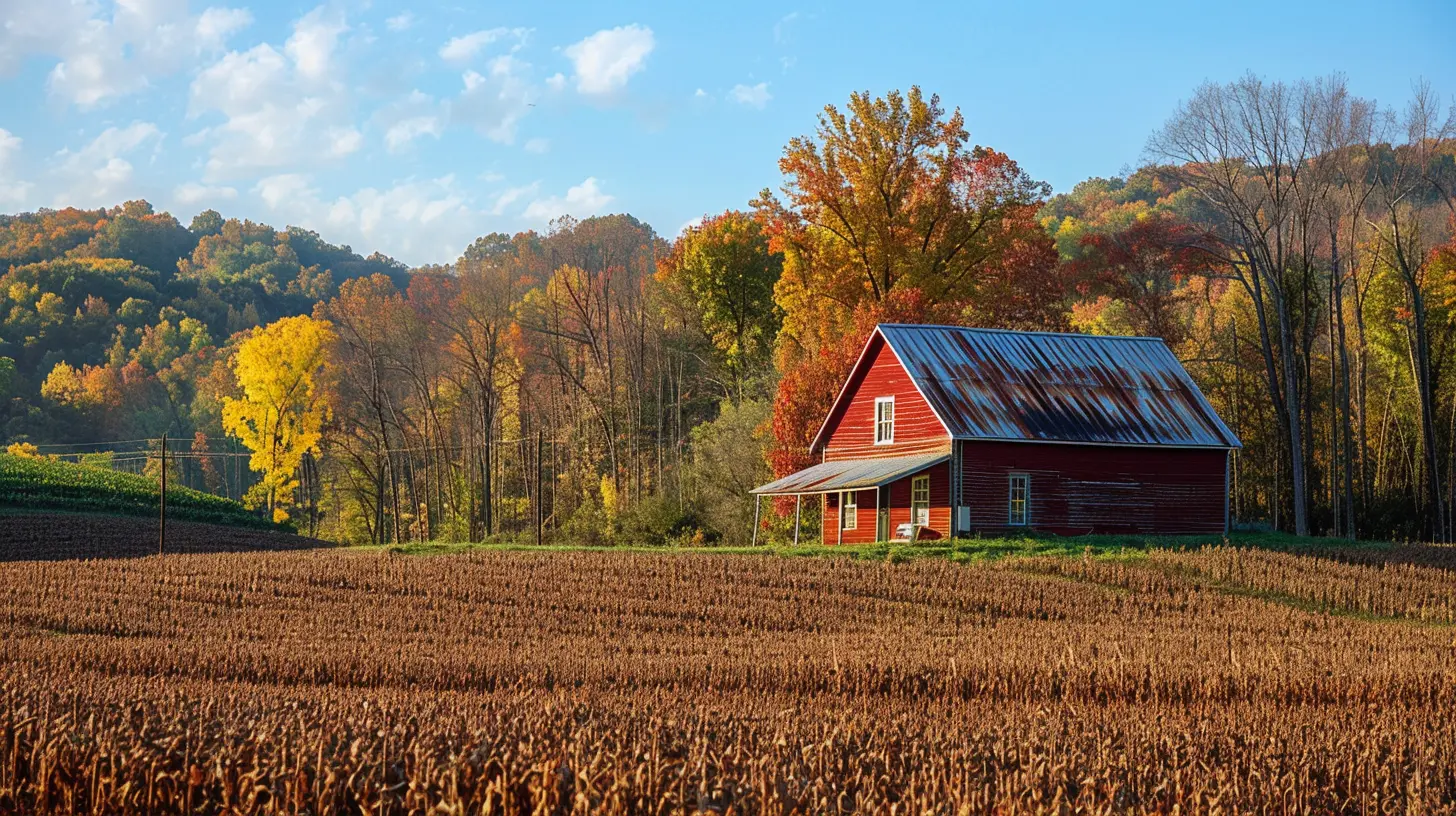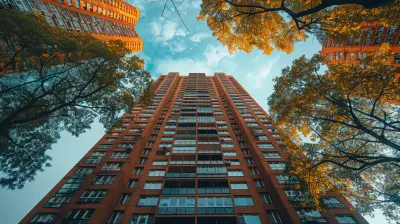USDA Loans: Affordable Homeownership in Rural Areas
21 September 2025
Buying a home is one of the biggest financial decisions you'll ever make. But for many, especially those in rural areas, securing an affordable mortgage can feel like an uphill battle. If you're dreaming of homeownership but struggling with a tight budget, a USDA loan might be the perfect solution.
These government-backed loans are designed to help low-to-moderate-income families buy homes in eligible rural areas—with zero down payment required. Sounds too good to be true? Stick with me, and I’ll break it all down for you. 
What Is a USDA Loan?
A USDA loan, officially known as a USDA Rural Development Guaranteed Housing Loan, is a mortgage program backed by the U.S. Department of Agriculture (USDA). The goal? To encourage homeownership in less populated areas by offering affordable financing options.Here’s the best part: Unlike conventional loans that typically require a down payment of up to 20%, USDA loans don’t require any down payment. That’s right—zero dollars upfront. Instead, this program helps families buy homes with low interest rates and flexible credit requirements.
But before you start house hunting, let’s take a closer look at how these loans work and whether you qualify. 
Who Qualifies for a USDA Loan?
Not everyone can get a USDA loan—there are income limits and location requirements. But don’t worry! You don’t need to live on a farm in the middle of nowhere. Many small towns and suburban areas qualify under the USDA’s guidelines.Here are the primary USDA loan eligibility requirements:
1. Location Requirements
Your home must be located in a USDA-designated rural area. But "rural" doesn’t necessarily mean farmland. In fact, 97% of the U.S. map falls into USDA loan eligibility zones! Many small towns, suburbs, and even some areas near major cities qualify.To check if a specific address is eligible, you can use the USDA’s property eligibility map on their official website.
2. Income Limits
The USDA loan program is for low-to-moderate-income borrowers. Income limits vary by region and household size, but generally, you must earn no more than 115% of the median income for your area.For example, if the median income in your area is $60,000, your household income should not exceed $69,000 to qualify.
3. Credit Score & Financial Stability
While USDA loans are more flexible with credit scores, lenders typically look for a minimum score of 640. If your score is lower, don’t panic—some lenders may still approve you based on your payment history and overall financial picture.You’ll also need to show:
- A steady income history (at least two years of employment or consistent income).
- A manageable debt-to-income (DTI) ratio, usually below 41%. 
Types of USDA Loans
There are actually three types of USDA loans, each serving a different purpose:1. USDA Guaranteed Loan
This is the most common type and is issued by approved lenders but backed by the USDA. It offers low-interest rates and no down payment.2. USDA Direct Loan
This loan is issued directly by the USDA for low-income borrowers who can't qualify for other financing. It offers subsidized interest rates, making homeownership even more affordable.3. USDA Home Improvement Loans & Grants
If you already own a home in a rural area, you can apply for a USDA home improvement loan or grant to make necessary repairs or upgrades.
Benefits of a USDA Loan
Why consider a USDA loan over a conventional or FHA loan? The benefits speak for themselves:✅ No Down Payment Required
Let’s be honest—saving for a down payment is one of the hardest parts of buying a home. With a USDA loan, you can buy a house without putting down a single dollar upfront.✅ Lower Interest Rates
USDA loans typically offer below-market interest rates, helping you save money over the life of the loan.✅ Flexible Credit Requirements
Even if your credit score isn’t perfect, you may still qualify for a USDA loan—whereas conventional loans are much stricter.✅ Lower Mortgage Insurance Costs
Unlike FHA loans, which require hefty mortgage insurance payments, USDA loans have lower fees. This keeps your monthly payments more affordable.✅ Fixed-Rate Mortgages
USDA loans only come with fixed interest rates, so your mortgage payment won't increase over time.The USDA Loan Application Process
Ready to take the plunge? Here’s how the USDA loan process works:1. Check If You’re Eligible
Start by visiting the USDA eligibility map online. If your desired home is in an eligible area, check the income limits for your region.2. Find a USDA-Approved Lender
Not all mortgage lenders offer USDA loans, so you’ll need to work with one that’s USDA-approved.3. Get Pre-Approved
Before house hunting, get pre-approved by a lender. This shows sellers you’re serious about buying and gives you a clear budget.4. Find Your Dream Home
Once pre-approved, you can start looking for eligible properties and make an offer when you find the right one.5. Complete the Loan Application & Underwriting Process
After your offer is accepted, your lender will process your loan application and gather necessary documents (income verification, tax returns, credit check, etc.).6. Home Appraisal & Inspection
A USDA-approved appraiser will assess the home to ensure it meets standard requirements. You’ll also need to complete a home inspection.7. Loan Approval & Closing
Once approved, you’ll sign the final paperwork, pay closing costs (which are often lower than conventional loans), and move into your new home! 🎉Common USDA Loan Myths (Debunked!)
There’s a lot of misinformation about USDA loans, so let’s clear up some common myths:🚫 Myth #1: You Have to Be a Farmer to Qualify
✅ Fact: Nope! USDA loans aren’t just for farmers—anyone who meets the income and location requirements can apply.
🚫 Myth #2: Only Remote Areas Qualify
✅ Fact: Many suburban neighborhoods qualify, not just farmland or remote areas.
🚫 Myth #3: USDA Loans Have High Fees
✅ Fact: USDA loans actually have lower mortgage insurance costs than FHA loans.
Is a USDA Loan Right for You?
If you’re looking for a zero-down loan with low interest rates, and you meet the income/location requirements, a USDA loan is definitely worth considering.However, if your income exceeds the USDA limits, you might need to explore other mortgage options like FHA or conventional loans.
At the end of the day, homeownership should be accessible to everyone. If you’ve been holding off on buying a home because of financial concerns, a USDA loan could be your ticket to an affordable, comfortable home in a rural or semi-rural area.
Final Thoughts
USDA loans provide a fantastic opportunity for individuals and families who might not otherwise afford a home. With no down payment, low interest rates, and flexible requirements, it’s one of the best mortgage programs available today.So, if you've been dreaming of buying a home but worried about affordability, it’s time to dig deeper into USDA loans. Who knows? The keys to your dream home might be closer than you think.
all images in this post were generated using AI tools
Category:
Real Estate FinancingAuthor:

Vincent Clayton
Discussion
rate this article
1 comments
Lydia McCabe
Who knew living in the country could come with such budget-friendly perks? Yeehaw!
October 5, 2025 at 2:48 AM

Vincent Clayton
Absolutely! Rural living offers great affordability and lifestyle perks. Thanks for your comment!


